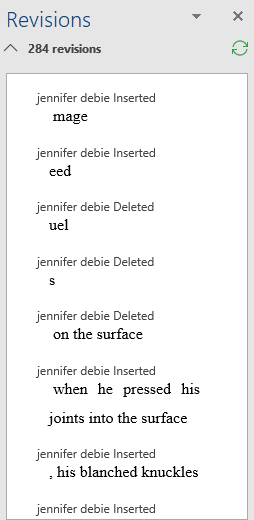When I was a kid, prove it was the phrase we used to settle disputes.
I’m faster than you.
My daddy’s smarter than your daddy.
Harry Potter is the biggest book in the world.
Prove it.
Prove it.
Prove it.
Sometimes the things we demanded proof for were, indeed, provable. Sometimes they weren’t, but the point was that if a claim was made, someone needed to be able to back it up. Back it up with smarts, with skill, with bluster, with anything, but you needed proof.
The older I got, the more the word proof evolved.
In the crime dramas I watch, proof is what the clever detectives are always looking for. Innocence, guilt, exoneration, it’s all in the proof.
In college, proof was the number on the label that we looked for on the cheap bottles we bought, begged, and borrowed for house parties.
When I moved to Ireland, proof became identification, access to the country I’d decided to live in for a while—proof of residence, proof of employment, proof of good standing with my university, my landlord, my vaccination status.

When I became an author, proof took on yet another shade.
The proof copy is the last edit.
You work on your novel and you slave and you edit and you send it to your beta readers and you take their suggestions on board and you change and you edit and you slave a little more, and then you send it out to a publisher.
And if you’re like me, you send it out to another publisher and another and another and you ignore the one acceptance you got because you accidentally sent your manuscript to a pay-to-publish vanity press and paying someone else to publish your work in the era of free Amazon Kindle publishing is ridiculous.
And then you send it out another time or three until finally the shoe fits, the stars align, and the right publisher says they’ll give you a shot.
They take this manuscript that you’ve loved and hated and been preparing to put out into the world for so long and they turn it into a book, and sometimes there’s some back and forth with the editors, and sometimes there isn’t, and then…
Then they send you the proof.
And you make the final check, cross your fingers, and send your baby off one more time.
For a few weeks now, I have fretted over my proof.
Weighed capitalization changes, scrutinized word choice, moved the odd comma.
Nothing major. We’re well past major changes.
Now is the time for fine tuning.
I’ve called my self a novelist for years now, but the editing on my first novel is something I’m not proud of. At the end of the day, I had the final say in what that manuscript looked like, and I did not check my proof like I should have. No matter how much affection I have for those characters and that story, they will always be a little stained by the proof of my negligence.
So here we are.
A new story. A new publisher, and a second chance to prove it.
The cover art is coming along beautifully (look for a cover reveal soon), my edits will be sent back to the publisher before the week is out, and after that? I don’t have a publication date yet, but when I do you will be the first to know.
And then we’ll see what the proof says.
Chase thunder,
JdB
 newest »
newest »
 newest »
newest »
 Valentin wrote: "Hi Jennifer, I really like your honesty, and I think that being critical about one's work is what makes for an accomplished author. Please let me know as soon as soon as your novel has a release da..."
Valentin wrote: "Hi Jennifer, I really like your honesty, and I think that being critical about one's work is what makes for an accomplished author. Please let me know as soon as soon as your novel has a release da..."




I'm nearing completion of my Corvix expanded edition, and the more I look at the first edition the more I realize how immature it was: notes particularly too long and rambling, which should have gone in as separate discursive essays, for a start. I got some good reviews (your's included) and a surprising starred review on Kirkus, so I am wondering: should I publish privately again (knowing that in no way do I have the marketing resources of a mainstream publisher) or should I approach a mainstream publisher again like Faber, armed with my reviews and make a case? You've got me thinking...